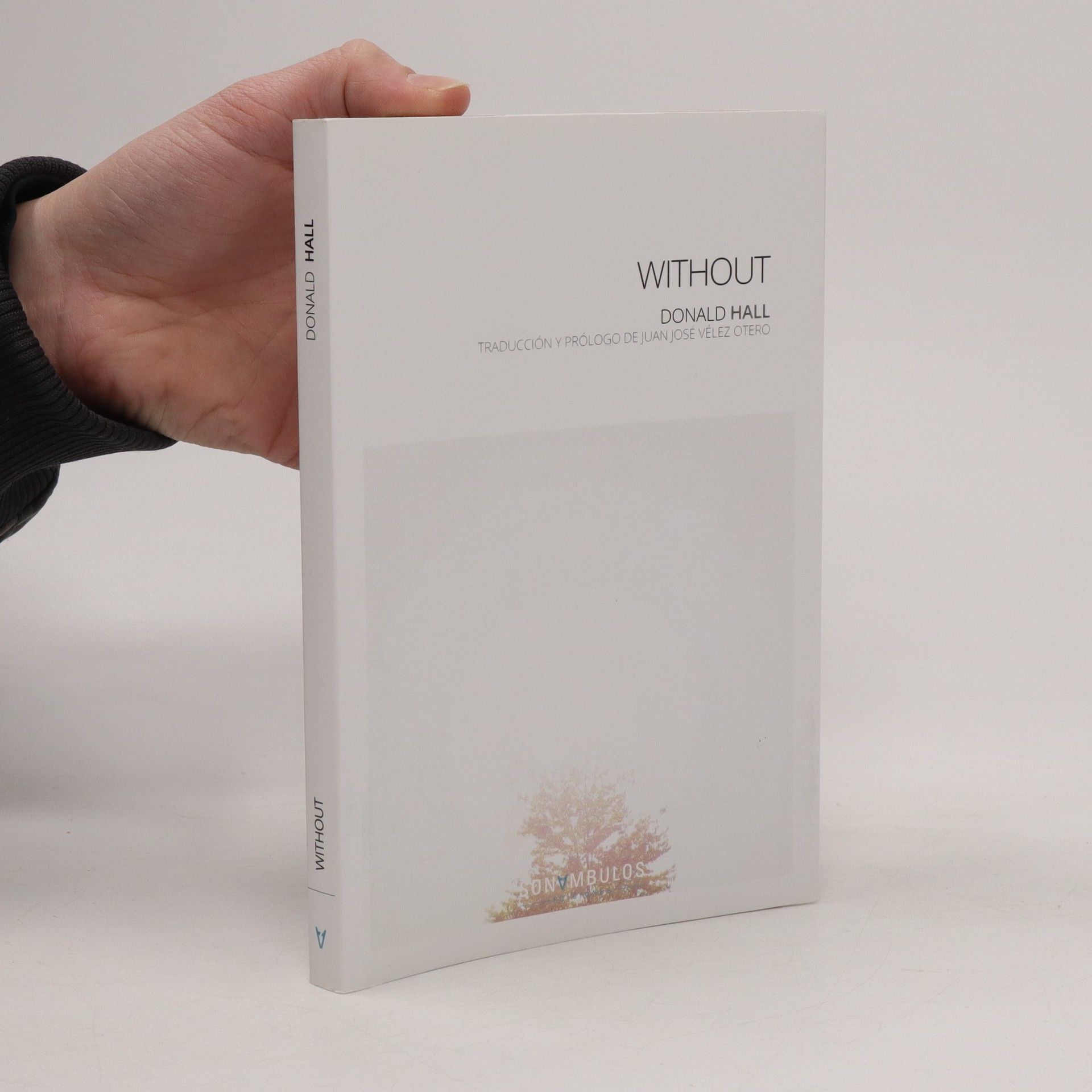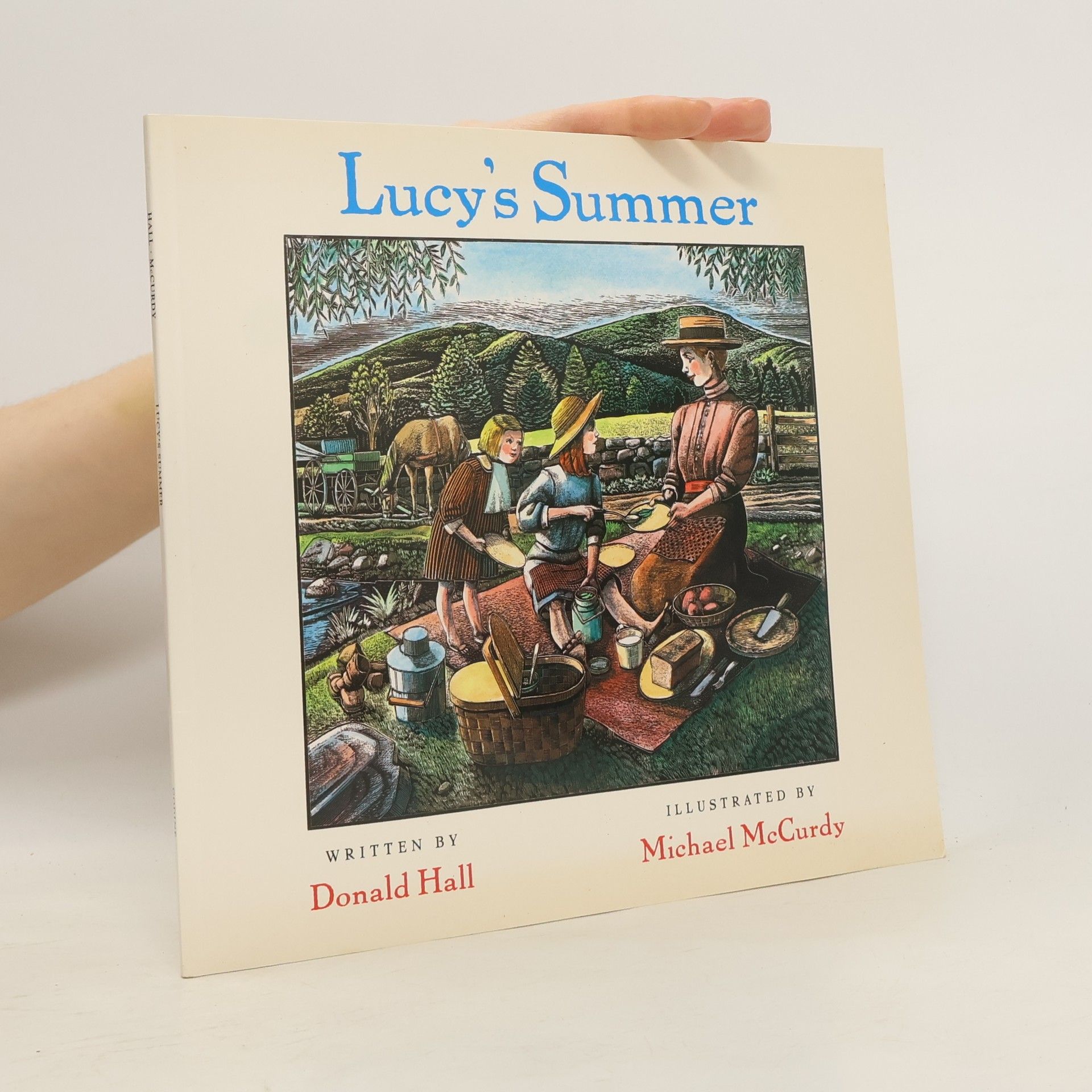Old Poets
- 296 pages
- 11 hours of reading
Donald Hall was an American poet whose work is characterized by a deep engagement with nature, rural life, and human relationships. His poems frequently explore themes of memory, aging, and the passage of time with remarkable honesty and sensitivity. Hall's style is known for its clarity, musicality, and ability to capture the essence of everyday moments. His writing offers a rewarding experience for anyone who appreciates poetry that is both intimate and universal.






Recollections of Summers on a New England Farm
The narrative offers a poignant exploration of life on a New Hampshire farm, reflecting on the author's childhood summers spent with his grandparents. As he matures, he witnesses the decline of the farm and the aging of his loved ones, capturing the complexities of nostalgia and loss. Each story-essay reveals a deep affection for the land and its people, while also hinting at the inevitability of change and the passage of time. In the Epilogue, Hall's return to the farm after twenty-five years adds a layer of reflection on memory and legacy.
You might expect the fact of dying--the dying of a beloved wife and fellow poet--to make for a bleak and lonely tale. But Donald Hall's poignant and courageous poetry, facing that dread fact, involves us all: the magnificent, humorous, and gifted woman, Jane Kenyon, who suffered and died; the doctors and nurses who tried but failed to save her; the neighbors, friends, and relatives who grieved for her; the husband who sat by her while she lived and afterward sat in their house alone with his pain, self-pity, and fury; and those of us who till now had nothing to do with it. As Donald Hall writes, "Remembered happiness is agony; so is remembered agony." Without will touch every feeling reader, for everyone has suffered loss and requires the fellowship of elegy. In the earth's oldest poem, when Gilgamesh howls of the death of Enkidu, a grieving reader of our own time may feel a kinship, across the abyss of four thousand years, with a Sumerian king. In Without Donald Hall speaks to us all of grief, as a poet lamenting the death of a poet, as a husband mourning the loss of a wife. Without is Hall's greatest and most honorable achievement -- his give and testimony, his lament and his celebration of loss and of love.
Zdravý jídelníček a dostatek pohybu jsou základními opatřeními v prevenci i léčbě, a to nejen cukrovky, ale také nemocí srdce a cév, rakoviny a dalších chronických onemocnění. Kniha Dona Halla je vynikajícím průvodcem na této cestě.
Impuls für Europa
Set in the summer of 1910, this companion to Lucy's Christmas follows young Lucy Wells through a memorable season. The narrative is enriched by award-winning poet Hall's lyrical storytelling, while McCurdy's stunning scratchboard illustrations bring the historical setting to life with vibrant detail. Together, they capture the essence of a bygone era, offering readers a glimpse into Lucy's enchanting world. Full-color artwork enhances the experience, making it a visually captivating journey.
A former poet laureate presents a new collection of essays delivering an unexpected view from the vantage point of very old age.
Experience the warmth of a traditional New England Christmas as it captures the joy of handmade gifts and family togetherness. This nostalgic journey emphasizes the value of creativity and personal touch in holiday celebrations, inviting children to appreciate the charm of simpler times. The narrative celebrates the spirit of giving and the satisfaction derived from crafting presents, fostering a deeper connection to the holiday season.
Capturing the essence of life at Eagle Pond Farm, Donald Hall reflects on his deep connection to this New Hampshire landscape, where he spent cherished moments with his grandparents and later his wife, poet Jane Kenyon. The collection features previously published works alongside uncollected essays and a poem, offering a rich tapestry of experiences through the seasons. Hall's writing blends humor and nostalgia, celebrating a vanishing way of life while exploring themes of love, loss, and the passage of time in a changing world.
Subjectivity explores the history of theories of selfhood, from the classical era to the present and demonstrates how those theories can be applied in literary and cultural criticism. It examines all the major methodologies and theoretical emphases of the 20th and 21st centuries.